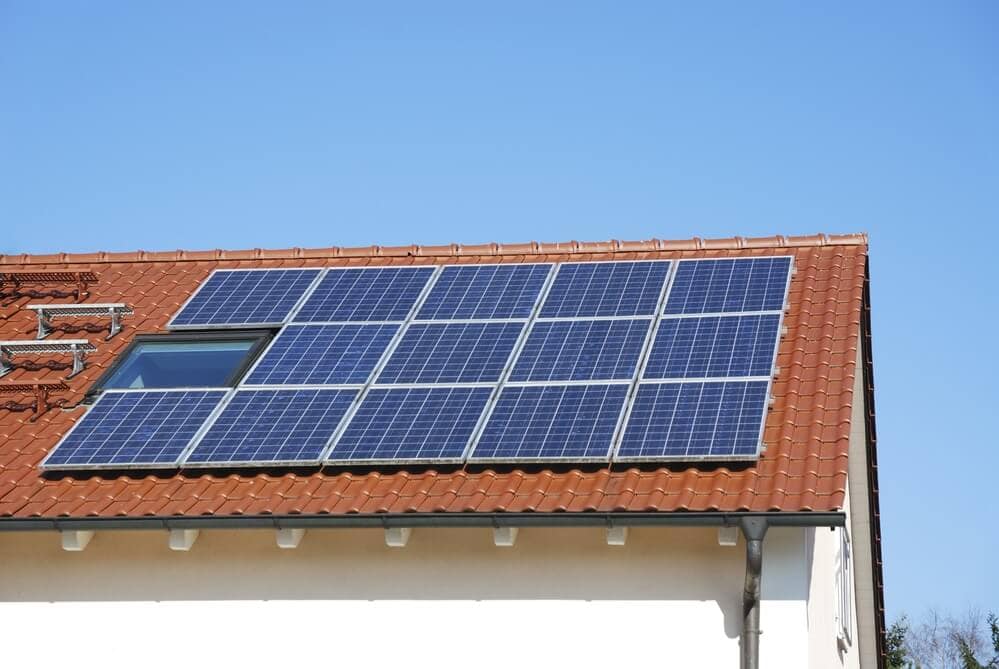Tips to Buying a Solar-Ready and EV-Compatible Home

Solar energy and electric vehicle charging are important factors to consider when looking to buy a new family home. We enlisted an expert to answer all the solar power questions you should be asking before buying a house to ensure it is solar-ready.

The Benefits of Solar Power
An energy-efficient home is helpful both to your budget and the environment, which means choosing to upgrade to solar power or buying a home with a system in place is a win-win.
One of the most significant benefits to going solar is a sense of safety and independence, explains Meital Stotland, Senior Solar Energy Consultant at Baker Electric Home. As parents, we want to put all of our power and resources into making life easy and comfortable for our precious children, who we love so much. We want to cultivate an inner world that can handle any circumstance powerfully, and we also hope to support an outer world that is sustainable for our kids as they grow into adults. Focusing on renewable energy helps us achieve all of this.
Determining If a House Is Solar-Ready
When looking to buy a home, it’s not uncommon that one of the first things people want to do after they close escrow and fully acquire the house is to install solar panels and get an electric vehicle charger ready to go. However, to ensure that you are buying a solar-ready home, Meital suggests asking specific questions before signing your life away and moving into a new house.
Understanding the energy usage in the home is essential to understanding how many panels you’ll need to put on the house, which will, in turn, impact the average solar panel cost for a new home. It’s helpful to know what the last owners were using and if you will use a similar amount of energy.
Examining the house itself is also critical. Meital suggests taking these investigative steps:
- Go to the electrical panel — if there are spiders and cobwebs in the main service panel — you may want to look into the electrical situation of the home a bit more.
- If it’s a 100amp main breaker or less — RUN or NEGOTIATE — that is very low amperage for a modern-day home and will probably need to be upgraded for solar and EV charging stations.
- Take an overall look at the home and know, if it has a pool, jacuzzi, one or more air conditioning units — you need to have an excellent electrical set up for those amenities alone — not including solar and EV charging apparatus.
- Check the roof: Most solar goes on the roof, and if it’s too old, it needs to be updated before the solar can go on. If it’s a shingle roof — take a quick look — can you see the fiberglass shining back at you? If it’s a tile roof — is it concrete or clay tile? They look somewhat similar but are vastly different. Know that there is roofing paper underneath tiles, and if it’s 15 years or older – you may need to update the roofing paper.
Top Questions to Ask Your Realtor About Solar Power
When you’re in the market for a new home, there are some things you can ask your realtor to determine if a house is solar-ready or what it will take to prepare for and install solar panels.
- Is the home ready to Install Solar Panels?
- What’s the amperage on the electrical panel?
- Is the roof over or under 15 years old?
- Are there exposed beams on the roof?
- What kind of roof is it? Clay tile, concrete tile, comp shingle, wood shingle, metal shake, or shake?
- What should I look for when buying a house with solar panels?
- Will appraisers like solar panels?
- Is it more challenging to sell a house with solar panels?
- What happens if you buy a house with leased solar panels?
- What is the easiest and cheapest way to get a car charger installed in your home?
Getting a home solar-ready can be a costly and time-consuming process depending on the state of the house, which makes it essential to consider before purchasing a new home. While installing solar panels can be a significant financial investment, it pays off in the long run, both financially and environmentally.
